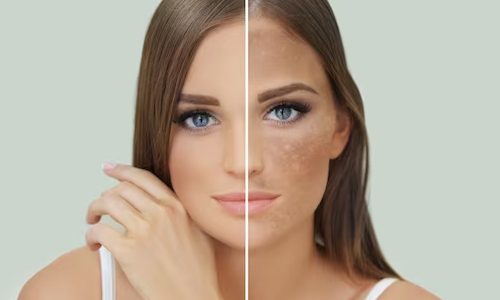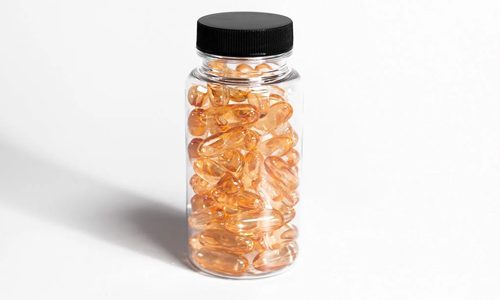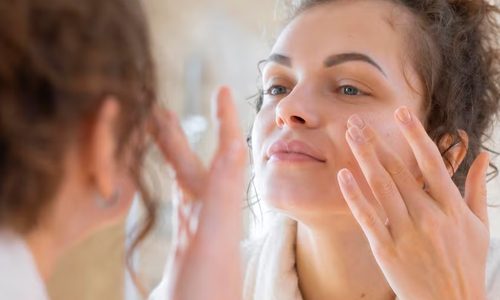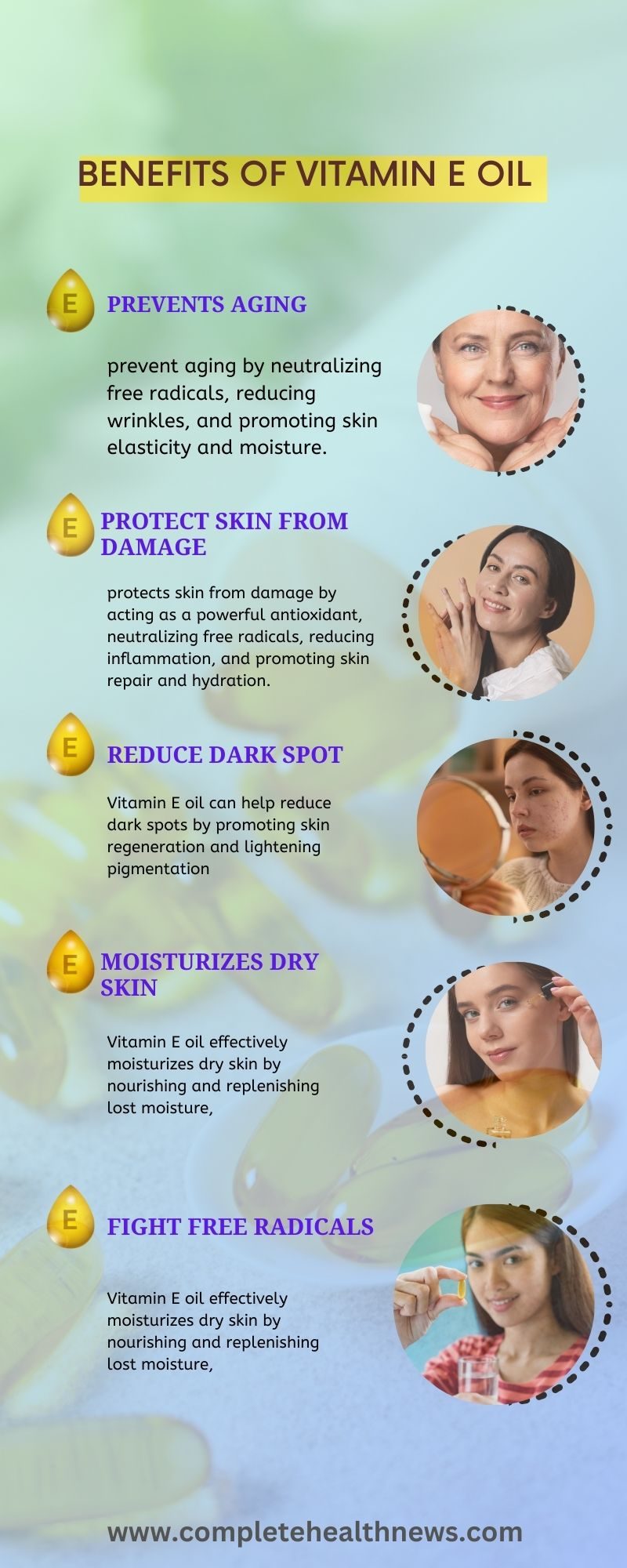What Is Vitamin E Oil & How to Use
Vitamin E is a magical potion that works many wonders for your skin and health.It is rich in antioxidants and anti-inflammatory properties, helping to combat free radicals that cause damage to the skin. Moreover, this amazing nutrient is used to treat Alzheimer’s disease, age-related vision loss, and even some harmful diseases like cancer.
Vitamin E is available in various forms such as drops, oil, capsules, syrup, creams, and more. This tiny capsule is loaded with a plethora of goodness, which is why the cosmetic industry relies on it. Vitamin E is effective for treating psoriasis, dry or itchy skin, and eczema. It also smooths wrinkles, heals wounds, and reduces scars.
Vitamin E oil can be directly applied to the skin, and these supplements are most commonly preferred for external applications, with only a few being consumed orally.
Benefits of Vitamin E Oil
Skin Moisturiser
Vitamin E moisturizes the skin by reducing the flakiness and dryness. The anti-inflammatory properties of Vitamin E restore suppleness and make it softer. Besides moisturizing, it is prescribed to treat psoriasis and eczema.
Reduces Pigmentation
Our skin becomes more darker when melanin increases. Later it turns to hyperpigmentation which is known as melasma. Vitamin E is considered the best cure to lighten the darkened skin tone. Surprisingly, the combination of vitamin E and vitamin C protects your skin during sun exposure and reduces pigmentation.
Prevents Skin Aging
Dryness can accelerate the aging process in your skin, particularly for those with dry skin who often experience fine lines and wrinkles. The antioxidants in vitamin E oil can moisturize the skin and enhance its elasticity. Massaging vitamin E oil can slow the aging process and improve blood circulation.
Treats Eczema
Since Vitamin E acts as the best moisturizer, it reduces dryness, itching, and flaking that are linked to eczema or atopic dermatitis. A study discovered that oral consumption of vitamin E supplements effectively works on treating Eczema.
Side Effects of Vitamin E Oil
Using Vitamin E oil externally is entirely safe. However, its oral consumption is generally deemed safe, though not recommended for everyone. Some may have experienced some side effects like:
- Fatigue
- Diarrhea
- Nausea
- Headache
- Blurred vision
- Rash
- Intestinal cramps
In some cases, it may even increase the risk of prostate cancer. So it is advisable to consult with a physician before you pop one.
How to Use Vitamin E Oil on Your Face
- mild soap or face wash. Pat them gently with a cloth.
- Dip a cotton cloth in hot water( with bearable hotness), and pat it on your face for 2 to 3 minutes. By doing so, the pores will open so that the oil will sink in better.
- Put a few drops of oil on your finger and gently massage on all sides of your face.
- If you have sensitive skin, combine coconut oil with vitamin E oil before applying.
- If you have dry skin, leave it on overnight. If it’s sensitive skin, rinse after 10 to 15 mins.
Try to follow this tip a couple of times a month to get better results.
How Much Vitamin E Do You Need?
The dosage varies for men and women. For men 3mg per day, whereas for women they require 4mg per day. Besides supplements, you can get vitamin E from food as well such as sunflower oil and seeds, almonds, peanuts, peanut butter, pumpkins, avocados, hazelnuts, broccoli, kiwi, mangoes, and spinach.
Myths & Facts
Myth: Higher Dose of Vitamin E is Always Better
Do you believe that more vitamins are always better? This isn’t always true. The optimal amount of nutrients varies from person to person. For instance, adults typically require 15mg of Vitamin E daily. If you can’t obtain this from your diet, supplements may be recommended by your doctor.
Myth: Vitamin E is the Same as Every Other Vitamin
While there are numerous vitamins available, they are not all alike. Vitamin E plays a unique role compared to other vitamins, and it’s important to choose supplements based on your body’s specific needs.
Myth: Artificial Supplements are the Best
Natural and organic supplements are often considered superior. Doctors typically recommend improving vitamin intake through a natural diet. Organic supplements are more easily absorbed by the body than synthetic ones. Opting for natural options is generally the best choice.
Myth: Everyone Needs Vitamin E
Although many people don’t get enough Vitamin E from their diets, supplements are only necessary for those who are severely deficient. Others may not require them.
Myth: Vitamin E Cures Diseases
While Vitamin E supplements can act as antioxidants and fight inflammation, they cannot cure diseases entirely.
What the Research Says about Vitamin E
Alzheimer’s Disease
While a few studies confirm that high doses of vitamin E may delay the progression of Alzheimer’s, other research hasn’t shown this benefit.
Liver Disease
High doses of vitamin E can improve symptoms of nonalcoholic fatty liver disease. Some evidence even suggests that oral vitamin E pills are linked to insulin resistance.
Preeclampsia
Increased intake of Vitamin E during pregnancy does not prevent preeclampsia.
Prostate Cancer
Vitamin E does not prevent prostate cancer, and oral use of Vitamin E may even increase the risk. It is always advisable to obtain enough vitamins from a balanced diet.
Hope you discovered the benefits and usages of vitamin E oil. If you are going to try this magical potion for the first time, do not forget to do a patch test. Note that, everything takes time, and you cannot see the results immediately. So do follow the tips, apply regularly, and give some time to get the best results.



























